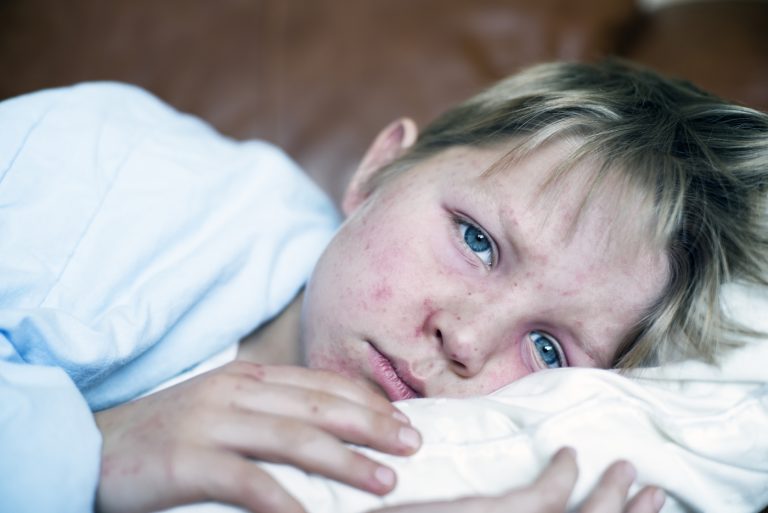
It’s long been known that measles makes people more vulnerable to other infections for an extended period. Now scientists at the Sanger Institute and their colleagues have uncovered the reason for this. The measles virus “deletes” part of the immune system’s memory, removing previously existing immunity to other infections.
This finding comes as the number of measles cases worldwide peaks, largely because of parents who are failing to vaccinate their children. In the US alone, there have been 1,250 cases of measles so far this year, according to the CDC. This contrasts to just 55 cases in 2012. One of the leading reasons that parents fail to vaccinate children is because of the belief that measles is a relatively benign disease and that it is better for children to just experience the disease than to be vaccinated.
This belief is upended, however, by the new evidence that measles causes a long term disruption of immune function.
Researchers from the Wellcome Sanger Institute, University of Amsterdam and their collaborators studied a group of non-vaccinated people in the Netherlands to make this finding. Blood samples were first taken from healthy volunteers from the community, who were followed-up for repeat sampling after a measles outbreak in 2013. The researchers sequenced antibody genes from 26 children, before and 40-50 days after their measles infection. The team discovered that specific immune memory cells that had been built up against other diseases, and were present before the measles virus infection, had disappeared from the children’s blood after the infection. This left the children vulnerable against infectious diseases they had previously been immune to.
“This study is a direct demonstration in humans of ‘immunological amnesia’, where the immune system forgets how to respond to infections encountered before. We show that measles directly causes the loss of protection to other infectious diseases,” said Velislava Petrova, Ph.D., lead author from the Wellcome Sanger Institute and Cambridge University
This study explains why after having measles, children often contract other infections. It also highlights the importance of vaccination against measles. Falling vaccination rates are not just resulting in rising cases of measles, but could be causing an increase in cases of other dangerous infections such as flu, diphtheria or tuberculosis, even in people who were previously immune to these diseases.
A measles infection typically causes coughing, rashes and fever, but it can lead to potentially fatal complications including pneumonia and encephalitis – inflammation of the brain. Measles leads to more than 100,000 deaths per year worldwide in unvaccinated populations.
A highly effective measles vaccine was introduced into the UK in the late 1960s and in 2017 measles had been completely eliminated from the UK. However, measles is highly contagious and measles cases are rising again as the UK vaccination rate has dropped below the required level of 95 per cent of the population. This has led to the UK losing its World Health Organization (WHO) measles elimination status recently.
Researchers also tested this ‘immunological amnesia’ hypothesis directly in ferrets, showing that infection with a measles-like virus reduced the level of flu antibodies in ferrets that had been previously vaccinated against flu. These ferrets also had worse flu symptoms when infected with flu virus after the measles-like infection.
The measles virus essentially resets the immune system to an immature state. This means that having measles makes it difficult for the immune system to later respond to any new infections.
“For the first time we see that measles resets the immune system and it becomes more baby-like, limiting how well it can respond to new infections. In some children the effect is so strong it is similar to being given powerful immunosuppressive drugs. Our study has huge implications for vaccination and public health as we show that not only does measles vaccination protect people from measles, but also protects from other infectious diseases,” says Professor Colin Russell, senior author from the University of Amsterdam, Netherlands.













